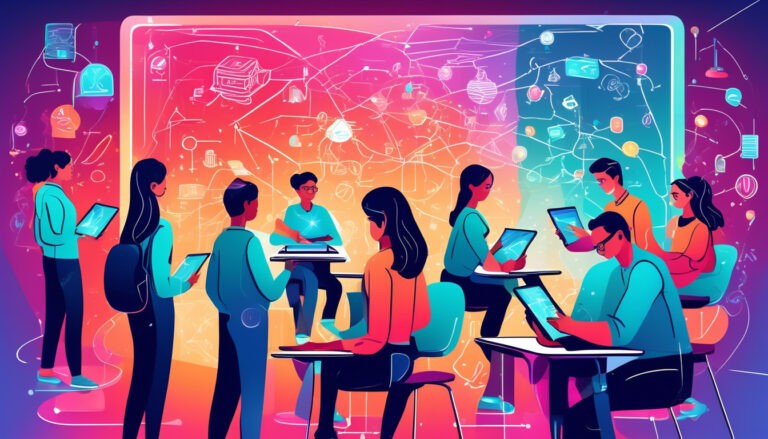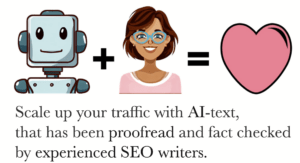In an era where technology continually reshapes our lives, AI-generated content is making a significant impact on education and learning.
By harnessing the power of artificial intelligence, educators and students alike are discovering new ways to enhance the learning experience.
From personalized lesson plans to real-time feedback, AI’s ability to generate tailored educational content means that learning can be more adaptive and efficient than ever before.
This article delves into the transformative potential of AI in education, exploring how it’s not only making information more accessible but also fostering a more engaging and interactive learning environment.
Benefits of AI in Education
AI in education offers numerous benefits, enhancing both teaching and learning experiences.
You’ll find that AI can streamline administrative tasks, freeing up more time for educators to focus on actual teaching. It can grade assignments quickly and accurately, reducing the workload on teachers.
AI-driven analytics can help identify trends and patterns in student performance, allowing you to address issues before they become significant problems. Additionally, AI can offer instant feedback to students, helping them understand mistakes and learn from them immediately.
With AI, you can also access a vast array of resources and tools, making lesson planning more efficient.
Embracing AI in education means you’re adopting technology that supports and enriches the educational environment, making it more effective for everyone involved.
Personalized Learning Experiences
AI allows for personalized learning experiences, tailoring educational content to meet each student’s unique needs and learning pace.
You can benefit from lessons that adapt based on your strengths and areas for improvement. AI analyzes your performance and provides targeted exercises to help you master challenging topics.
Instead of a one-size-fits-all approach, you get a learning journey that’s designed just for you. Imagine having a tutor available 24/7, offering immediate feedback and adjusting materials to keep you progressing.
This way, you’re never bored with content that’s too easy, nor overwhelmed by material that’s too difficult. By catering to your individual learning style, AI ensures that you achieve your educational goals more efficiently and effectively.
Enhancing Student Engagement
AI-generated content can significantly boost student engagement by making learning more interactive and immersive. You can use AI tools to create dynamic quizzes, simulations, and virtual reality experiences that make lessons feel more like a game than a chore. This kind of content keeps students’ attention and encourages active participation.
You’ll also find AI-generated content can adapt to students’ moods and learning paces, making lessons more appealing and less frustrating. For instance, AI can generate instant feedback and hints when students are stuck, ensuring they stay motivated and engaged.
Additionally, AI can personalize challenges to fit each student’s skill level, providing just the right amount of difficulty to keep them interested and invested in their learning journey.
Improving Content Accessibility
AI-generated content can make educational materials more accessible by tailoring them to meet diverse learning needs and preferences. You can customize content to different reading levels, ensuring it’s understandable for everyone.
Plus, AI can convert text to audio for those with visual impairments or create subtitles for videos, aiding students who are deaf or hard of hearing.
You’ll find that AI tools can also translate content into multiple languages, breaking down language barriers and making education inclusive.
Additionally, AI can adjust the format of materials, such as converting dense paragraphs into bullet points or visual aids, which can help those with learning disabilities better grasp the information.
By leveraging AI, you’re making education more inclusive and effective for all learners.
Efficient Knowledge Delivery
AI can streamline the delivery of knowledge, ensuring students receive information quickly and efficiently. By leveraging advanced algorithms, AI can break down complex topics into digestible chunks that are easier to understand.
You’ll find that AI-powered platforms can curate personalized learning pathways, directing students to the most relevant resources based on their individual needs and progress.
Moreover, AI enables real-time updates and instant access to the latest educational materials. This means students won’t have to wait for outdated textbooks to be replaced or for teachers to manually update lesson plans.
AI tools can also facilitate interactive learning experiences, such as virtual labs and simulations, making abstract concepts more tangible.
Ultimately, AI’s efficiency in knowledge delivery can significantly enhance the overall learning experience.
Tailored Assessments and Feedback
AI-driven tools can provide personalized assessments and immediate feedback, enhancing students’ learning experiences by addressing their unique strengths and weaknesses.
Imagine having a virtual tutor that adapts to your learning pace, offering tailored quizzes and tests that highlight areas you excel in and those that need improvement. You’ll get instant feedback, enabling you to correct mistakes on the spot and understand concepts more deeply.
These tools can analyze your performance in real-time, providing insights that help you focus on what matters most. Instead of generic feedback, you’ll receive specific, actionable advice that caters to your individual needs. This not only boosts your confidence but also fosters a more engaging and effective learning environment.
With AI, your educational journey becomes more personalized and impactful.
Addressing Learning Gaps
AI-powered educational tools excel at identifying and addressing learning gaps, ensuring no student is left behind. By analyzing your performance data, these tools pinpoint areas where you struggle. They then provide targeted resources and exercises to help you improve.
Unlike traditional methods, AI can offer personalized support in real-time, adapting as you progress. This means you get the help you need exactly when you need it.
In addition, AI systems can predict potential learning obstacles before they become problematic. They offer proactive interventions, giving you a chance to master challenging concepts early on. This ensures a smoother learning journey and boosts your confidence.
With AI-guided learning, you’re empowered to overcome obstacles and achieve your educational goals more efficiently.
Future Implications and Trends
As AI continues to evolve, it will revolutionize the educational landscape with new trends and capabilities.
You’ll see personalized learning paths tailored to each student’s strengths and weaknesses. AI can predict learning outcomes, allowing educators to intervene before problems arise. Real-time feedback will make the learning process more dynamic and responsive.
Virtual tutors and AI-driven content creation will supplement traditional teaching methods, making education more accessible and engaging. Additionally, AI can analyze vast amounts of educational data to identify and implement best practices.
You’ll also notice increased use of adaptive learning technologies that adjust to individual students’ pace. Embracing these trends will help you stay ahead in the ever-changing educational environment, ensuring students receive the best possible learning experience.
How can educators ensure the ethical use of AI-generated content in their classrooms?
To ensure ethical use of AI-generated content in your classroom, stay informed on AI capabilities, vet sources rigorously, prioritize transparency, and teach students about ethical considerations.
Engage in ongoing discussions and training to navigate this evolving landscape.
What are the potential risks associated with relying heavily on AI for educational content creation?
Relying heavily on AI for educational content creation can pose risks such as lack of human touch, potential biases in algorithms, and reduced critical thinking skills development.
It’s crucial to balance AI use with human oversight.
How do students typically react to AI-generated content compared to traditional learning materials?
Students usually find AI-generated content more engaging due to its interactive nature.
It offers personalized learning experiences and immediate feedback.
This dynamic approach often leads to increased motivation and better understanding compared to traditional learning materials.
Conclusion
In conclusion, AI is revolutionizing education by providing personalized learning experiences, enhancing student engagement, improving content accessibility, and addressing learning gaps.
The future implications and trends of AI-generated content in education hold great promise for efficient knowledge delivery and tailored assessments and feedback.
Embrace the potential of AI to transform the way we learn and educate, as it continues to shape the future of education in innovative and impactful ways.





